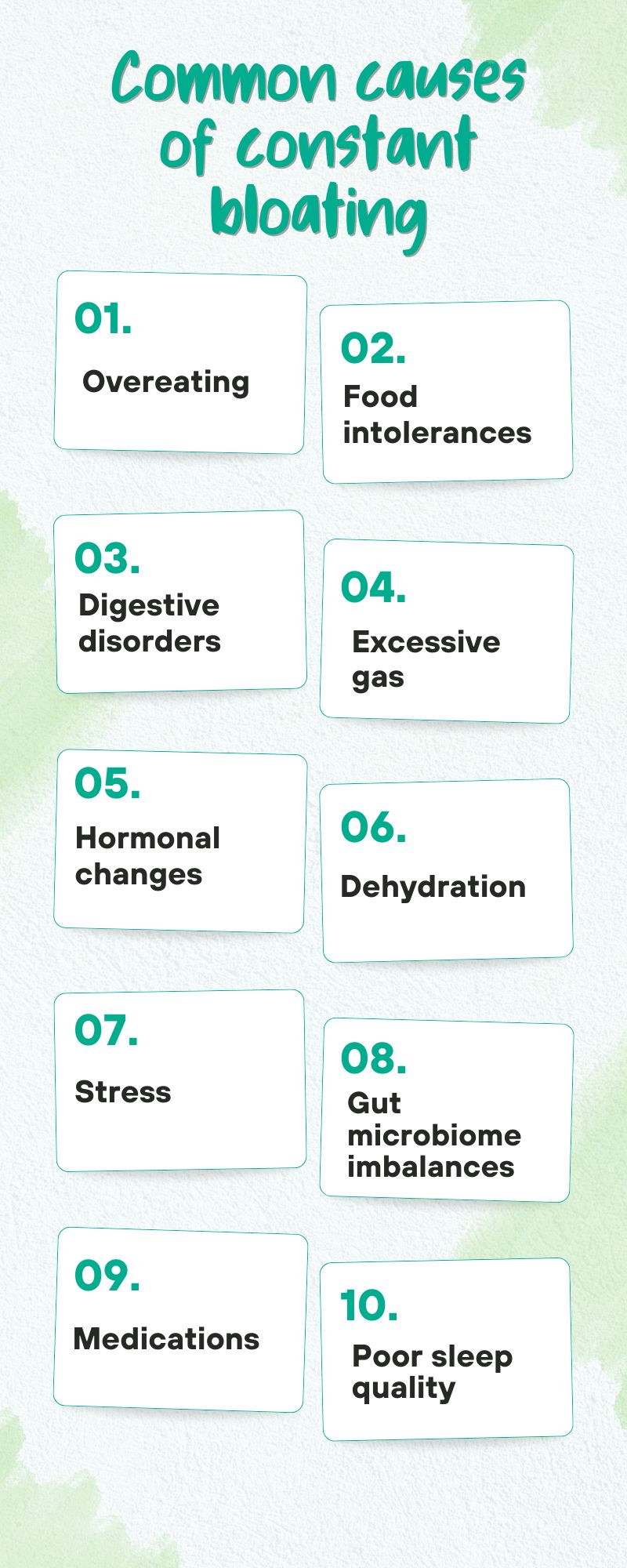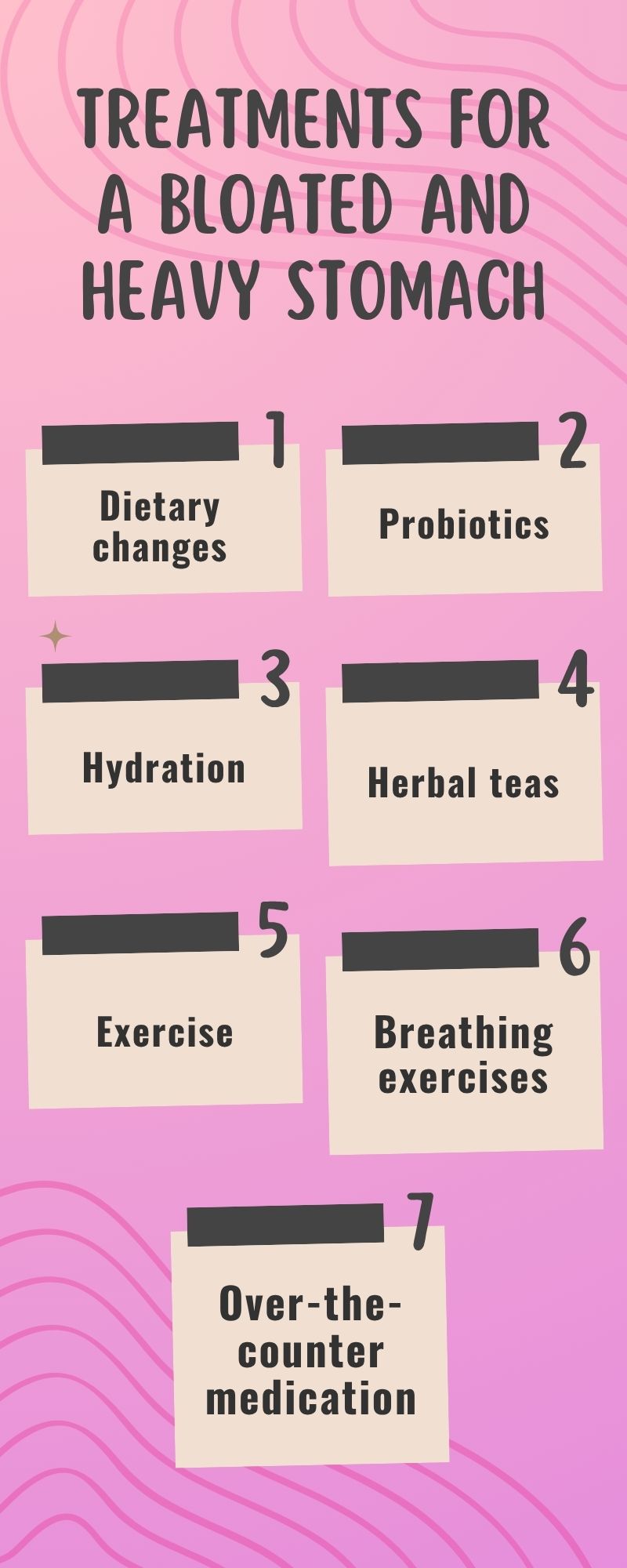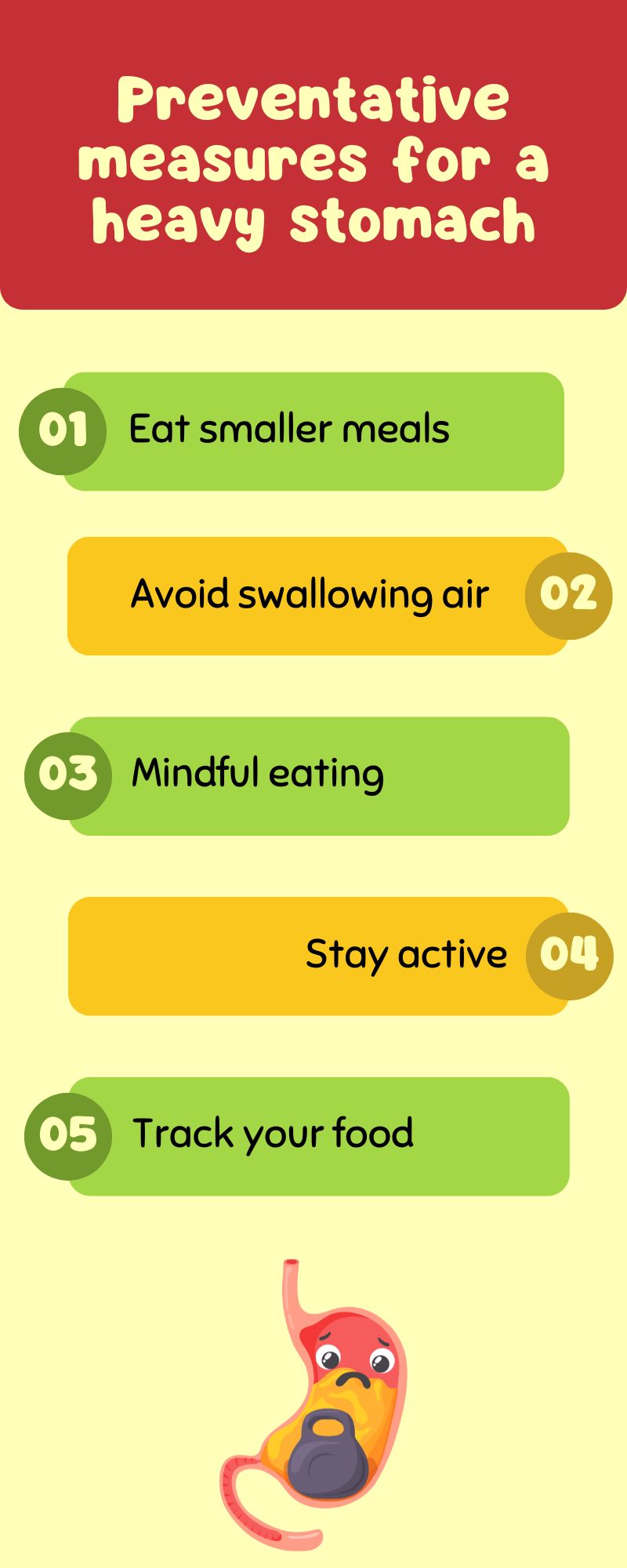TL;DR
-
Causes of bloating: Overeating, food intolerances, digestive disorders, stress, and hormonal changes can all contribute to bloating
-
Common symptoms: Fullness, excessive gas, abdominal pain, and visible swelling are typical signs of bloating after meals
-
Effective treatments: Smaller meals, hydration, probiotics, herbal teas, light exercise, and stress management can help alleviate bloating
-
Preventive measures: Eating slowly, avoiding air-swallowing habits, managing stress, and staying hydrated can help prevent bloating
-
Gut health importance: Maintaining a healthy gut is key to digestion, immunity, and overall well-being. Probiotics and a balanced diet support gut health and reduce bloating
Have you ever found yourself asking, “Why do I feel bloated all the time?” or noticed that no matter what you eat, your stomach always feels heavy and uncomfortable? If you’re tired of dealing with bloating and digestive discomfort, you're not alone. These issues are incredibly common, affecting millions of people worldwide. Whether it’s after a large meal or for no apparent reason at all, a bloated stomach can leave you feeling sluggish and frustrated. But the good news is that it’s possible to manage, reduce, and even prevent bloating with the right strategies.
In this blog, we will get into the causes of bloating, share some helpful treatments, and provide useful tips for prevention, so you can start feeling more comfortable in your own body.
What is bloating?
Bloating is a feeling of fullness or pressure in the stomach that’s often accompanied by visible swelling. It can happen after eating, during digestion, or for seemingly no reason at all. While occasional bloating is fairly normal, persistent or frequent bloating may indicate an underlying issue that needs attention.
Common symptoms include:
-
Abdominal discomfort
-
Excessive gas
-
A feeling of fullness or heaviness
-
Swelling in the stomach area
It’s important to note that bloating isn’t just about eating too much—it can be a result of several factors like poor digestion, food sensitivities, and even stress.
Understanding why it happens is the first step in finding relief.
Common causes of constant bloating

Bloating doesn’t always result from overeating. Many different factors can contribute to this uncomfortable feeling. Below are some of the most common causes of constant bloating:
-
Overeating or eating too quickly
When you eat too much at once or eat quickly, your stomach has to work harder to digest the food. This can result in stomach bloating and the retention of air, which can cause discomfort. Eating smaller and frequent meals and chewing your food slowly can reduce bloating.
-
Food intolerances
Certain foods like dairy (lactose), gluten, or high-FODMAP foods (like beans and certain vegetables) can cause bloating for those who have sensitivities or intolerances. Identifying and avoiding these foods can help alleviate bloating and discomfort.
-
Digestive disorders
Chronic conditions such as IBS (Irritable Bowel Syndrome), GERD (Gastroesophageal Reflux Disease), and SIBO (Small Intestinal Bacterial Overgrowth) are known to cause ongoing bloating and digestive issues. Managing these conditions with medical guidance can reduce bloating significantly.
-
Excessive gas
Some foods, like beans, cruciferous vegetables (like broccoli and cauliflower), and carbonated drinks, can increase gas production in the stomach, causing bloating. Reducing or avoiding these foods can prevent excess gas buildup.
-
Hormonal changes
Hormonal fluctuations, particularly around menstruation, pregnancy, or menopause, can cause the body to retain water and create a sensation of bloating. This is a common issue for many women and can be managed with lifestyle adjustments.
-
Dehydration
When your body doesn’t get enough water, it retains fluid, which can lead to bloating. Hydrating properly throughout the day helps to flush out excess sodium and reduce water retention, preventing bloating.
-
Stress
Stress affects digestion by slowing down the digestive process and altering gut function. When you’re stressed, your body releases hormones that contribute to bloating. Managing stress through exercise, relaxation techniques, or mindfulness can help ease bloating.
-
Gut microbiome imbalances
An imbalance in gut bacteria causes digestive issues like bloating, gas, and constipation. Restoring balance through diet and probiotics can reduce these symptoms and promote a healthier gut.
-
Medications
Certain medications, such as antibiotics, painkillers, and birth control, can disrupt digestion and cause bloating. If you think your medication may cause bloating, consult your healthcare provider.
-
Poor sleep quality
Irregular sleep patterns or lack of sleep can interfere with your digestion, contributing to bloating. A consistent sleep schedule helps your digestive system function properly and reduces bloating.
Understanding the causes of bloating is the first step toward finding relief.
You can check out our blog on No More Tummy Troubles: Home remedies for Indigestion and Gas for more natural ways to ease digestive discomfort and reduce bloating.
Let’s explore some treatments that can help alleviate this discomfort.
Treatments for a bloated and heavy stomach

If bloating is a common issue for you, there are several treatments that can provide relief and support better digestion. Here are some effective options:
-
Dietary changes
Avoid foods that commonly trigger bloating, such as processed foods, beans, dairy, and carbonated drinks. Instead, incorporate digestion-friendly foods like ginger, mint, and yogurt, which help soothe the stomach and support healthy digestion.
-
Probiotics
Probiotics are important bacteria that help maintain a healthy gut microbiome. Adding probiotic-rich foods like kefir, sauerkraut, or yogurt, or taking probiotic supplements can help replenish good bacteria and reduce bloating. Probiotics improve gut health and support digestion by balancing gut bacteria. Explore The Good Bug’s probiotic products to give your gut a boost and support your digestive health.
-
Hydration
Drinking enough water throughout the day is key to keeping your digestive system healthy and preventing bloating. Proper hydration helps prevent water retention, which is a major cause of bloating.
-
Herbal teas
Teas like peppermint, ginger, and chamomile are known for their soothing properties. They can calm your digestive system and reduce bloating. Drinking a warm cup of herbal tea after meals can help relieve discomfort.
-
Exercise
Physical activity, even light movement like walking, can help reduce bloating by stimulating digestion and relieving trapped gas. Regular exercise promotes overall gut health and helps prevent constipation, which can contribute to bloating.
-
Breathing exercises
Stress can slow digestion and cause bloating. Deep breathing exercises or mindfulness techniques can help reduce stress, promote digestion, and alleviate bloating caused by anxiety.
-
Over-the-counter medication
For quick relief, medications like simethicone or activated charcoal can help break down gas bubbles and reduce bloating. However, long-term relief involves diet changes, probiotics, and stress management.
Incorporating these habits into your daily routine can help keep bloating at bay.
Now, let’s look at some tips to prevent bloating in the future.
Preventative measures for a heavy stomach

Preventing bloating and discomfort is all about adopting healthier habits. Here are some simple tips to help avoid a heavy stomach in the future:
-
Eat smaller meals: Large meals can overwhelm your digestive system, leading to bloating. Eating smaller portions throughout the day can help.
-
Avoid swallowing air: Eating too quickly, chewing gum, or drinking carbonated beverages can cause you to swallow air, which leads to bloating. Slow down while eating and avoid chewing gum.
-
Mindful eating: Take your time, chew food thoroughly, and enjoy your meals. This helps with digestion and reduces the chances of bloating.
-
Stay active: Regular exercise keeps your digestive system functioning well and prevents bloating. A short walk after meals can help.
-
Track your food: Keep a food diary to identify any foods that might be triggering your bloating. Once you know your triggers, you can make better food choices.
These habits can help reduce the chances of experiencing bloating and heaviness, but if you still find yourself dealing with constant bloating, it might be time to take further action.
If you’re feeling bloated after a “healthy” breakfast, it could be due to certain ingredients. Watch this video to learn why your breakfast might be causing bloating.
When to seek medical help
While occasional bloating is common, persistent bloating, severe pain, or other concerning symptoms require medical attention. Seek medical help if you experience:
-
Persistent or severe bloating
-
Unexplained weight loss
-
Blood in stool or vomit
-
Intense abdominal pain
-
Frequent heartburn or acid reflux
If any of these symptoms apply to you, it's important to consult a healthcare provider for a proper diagnosis.
Gut health and its importance
Your gut plays a major role in your overall health, affecting digestion, immunity, mental well-being, and even skin health. An unhealthy gut can lead to issues like bloating, weight gain, and poor digestion. Here’s why gut health is so important:
-
Gut digestion: A healthy gut promotes efficient digestion, helping your body break down food and absorb nutrients properly, reducing bloating
-
Immune function: Around 70% of your immune system is in your gut, so maintaining gut health is essential for protecting your body from infections
-
Mental health: The gut-brain connection means an unhealthy gut can contribute to stress, anxiety, and mood swings
Long-term strategies for maintaining a healthy gut
Maintaining a healthy gut involves regular care and lifestyle adjustments. Here are some long-term strategies for keeping your gut in top shape:
-
Consume probiotics and prebiotics: Probiotics help replenish good bacteria, while prebiotics nourish them. Include foods like kefir, yogurt, and fiber-rich vegetables.
-
Eat a varied diet: A balanced, nutrient-dense diet promotes a healthy gut microbiome. Include plenty of fruits, vegetables, lean proteins, and whole grains.
-
Hydrate: Drink water regularly to help digestion and prevent bloating caused by dehydration.
-
Exercise regularly: Physical activity boosts digestion and reduces bloating.
-
Manage stress: Chronic stress can damage your gut health. Practice mindfulness, yoga, or deep breathing exercises to relieve stress.
For a healthier and happier gut, try incorporating The Good Bug’s products into your daily routine. Our range of probiotics and digestive aids can help support a balanced microbiome and keep bloating at bay.
Bloating and a heavy stomach are common issues, but they don’t have to control your day. By understanding the causes and adopting simple habits like mindful eating, staying hydrated, and managing stress, you can reduce discomfort and support healthy digestion. Incorporating probiotics and making small lifestyle changes can go a long way in maintaining a healthy gut and preventing bloating.
Your gut health impacts much more than just digestion—it affects your overall well-being. Start taking small steps today, and you'll soon notice the difference. For extra support, explore The Good Bug’s range of probiotics to boost your gut health and feel more comfortable in your body.
Ready to feel lighter and more energetic? Start your journey with The Good Bug today and experience the benefits of a healthy gut!
Frequently Asked Questions (FAQs)
-
What causes constant bloating, and how can I stop it?
Constant bloating can result from overeating, food intolerances, digestive disorders, or stress. Managing your diet, adding probiotics, and staying hydrated can help.
-
Can stress cause bloating?
Yes, stress can affect your digestive system, slowing digestion and contributing to bloating. Reducing stress through relaxation techniques can help ease bloating.
-
How can I tell if my bloating is related to a food intolerance?
Keeping a food diary and noting when bloating occurs can help identify trigger foods. If you suspect a food intolerance, try eliminating suspect foods for a while to see if bloating improves.
-
What foods should I avoid to prevent bloating?
Common foods that cause bloating include dairy, beans, carbonated drinks, and processed foods. Consider reducing or eliminating these from your diet if you experience frequent bloating.
-
How can I manage bloating at home?
Drink herbal teas, stay hydrated, eat smaller meals, and add probiotics to your routine. These simple habits can help reduce bloating and promote healthy digestion.



